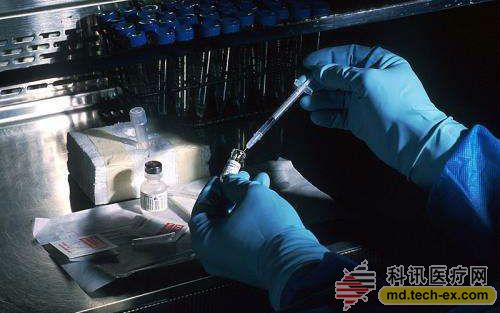New method for combating dengue virus: rapid induction of neutralizing antibodies, or replacement of traditional vaccines
Release date: 2015-08-07 The dengue virus is one of the most serious viruses that transmit human infections through mosquitoes. In recent decades, the number of dengue cases and the number of patients with latent dengue shock syndrome has been increasing. Nearly 400 million people are infected with this virus every year. The range of dengue virus infection has spread to more than 100 countries, causing a health and economic burden on a global scale. Although vaccines against dengue virus have been under development, there are currently no vaccines that provide sustained immunity to both dengue virus strain types or serotypes. After the patient acquires one type of virus immunity, it is not immune to other types of viruses. Researchers at the University of Pennsylvania's Perelman School of Medicine have pioneered a new way to develop an immune vaccine – no need for vaccination to gain immunity. The researchers injected the test mice with a synthetic DNA encoding a specific neutralizing antibody, allowing the rapid production of antibodies in mice infected with dengue virus, and resisting the disease without inoculation of a specific vaccine. This rapid immunization method is called "DMAb" and can quickly protect test mice. Contradictory "virus advantage" The general vaccine antibody has two important structural regions: one end is the protein recognition region, which recognizes the target protein, such as the membrane protein of dengue virus; the other end is the receptor binding region, which can bind to the receptor of the immune cell and can activate the immune system. , to prevent virus intrusion. However, dengue viruses have a special "natural advantage": dengue viruses tend to infect specific cells recognized by antibodies. Low levels of antibodies are obtained from serotypes after dengue infection. These antibodies recognize other different serotypes, and at the same time, antibodies bind to specific cells, which causes the virus to pour into the cell, resulting in viral replication and quantity. Increased and increased resistance, eventually serious or even fatal. Many researchers have tried to eliminate cellular receptors. However, traditional immunological techniques are generally unable to produce antibodies that do not bind to receptors. In the current study, DNA encoding a neutralizing antibody against dengue virus is capable of producing neutralizing antibodies and does not bind to cellular receptors, effectively eliminating the enhancement and lethality of dengue infection. David B. Weiner, professor of pathology and laboratory medicine and chairman of the gene therapy and vaccine program, said: "Engineering innovative approaches to providing monoclonal antibodies may be an important breakthrough in combating viral infections and individual treatment." Application prospect of intramuscular injection of DMAbs In the past few decades, monoclonal antibodies (mAbs) have been an important treatment for a variety of diseases, including cancer, autoimmune diseases or infectious diseases. However, such antibodies are expensive and the development process is time consuming. Traditionally, mAbs have been developed and produced in vitro in large-scale cell culture laboratories. Since antibodies fail over time, mAbs in hospitals require frequent repetitive management, a process that increases their cost. While DMAbs, produced in vivo, may overcome these limitations and reduce cost barriers so that this antibody can benefit more people around the world. Seleeke Flingai, a lead author of the study and a PhD student at Wiener Labs, believes that with the rapid development of antibody research and development, DMAbs have greater application prospects. In this study, the test mice did not die after injection of DMAb within one week of infection with dengue virus. This defense is much more efficient than traditional vaccines. The next step in the research is to conduct more animal testing and to test how this method can be used to prevent and treat other diseases. Weiner emphasizes that rapid induction of immunity applies to specific populations, including tourists, the elderly, or other people who are sensitive to vaccines. The relevant research results were published in the Nature issue "Scientific Reports" on July 29. Source: Bio-Exploration
Our super green powder are mainly used as food supplement, health and wellness product additive, you can mix the super greens and Vegetable Powder according to your own formula. Spirulina, chlorella, broccoli powder, kale powder, buckwheat powder, wheatgrass powder, barley grass powder. Those powders are rich in protein, fibers, antioxidant and chlorophyll which can clear free radicals, enhance immunity and providing trace elements people can`t obtain from high carbohydrate diet. Organic super greens powders are Non-GMO, gluten free and vegan friendly, welcome to reach us for more you would like to know.
Super Greens,Buckwheat Grass,Organic Super Greens,Super Greens Powder YT(Xi'an) Biochem Co., Ltd. , https://www.ytlinkherb.com
